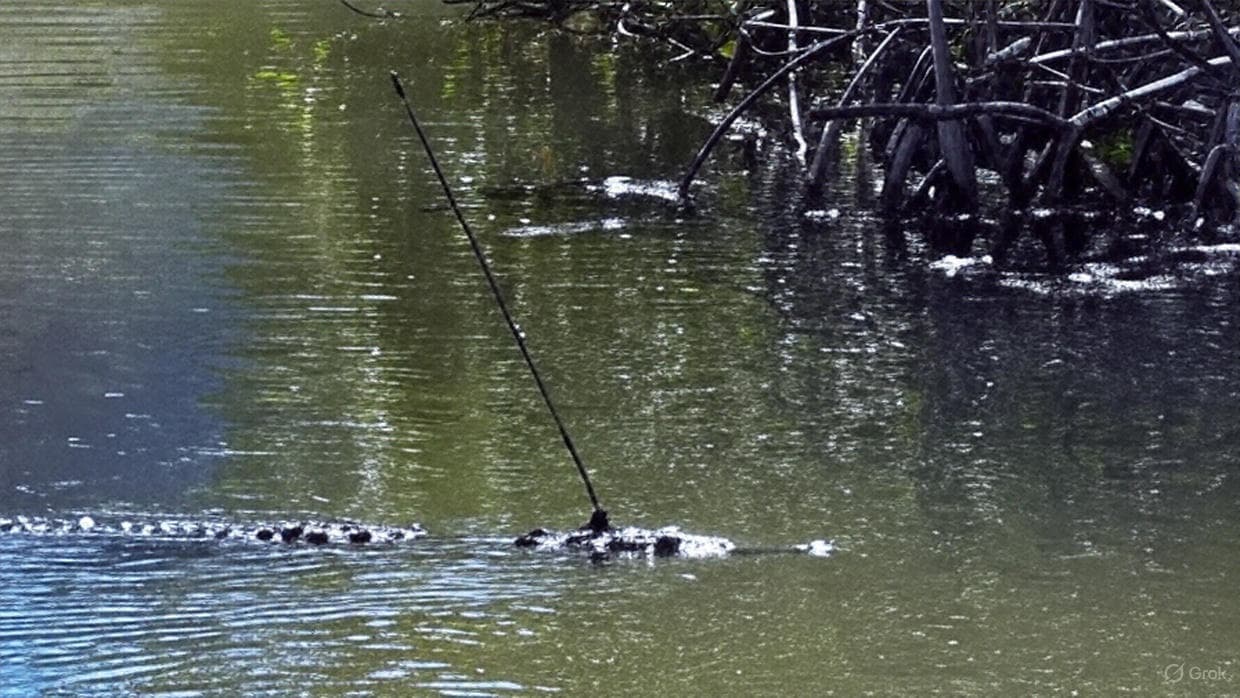Speared American Crocodile Captured in Key Largo; Reward Offered
An approximately 8-foot American crocodile found with a spear lodged in the back of its head near mile marker 101 in Key Largo was captured alive by Florida Fish and Wildlife Conservation Commission officers on Oct. 20 after a two-day search. The incident, treated as a possible poaching violation against a federally threatened species, has prompted an active investigation and a reward offer for information, raising concerns about wildlife protection and local ecosystem impacts in Monroe County.
AI Journalist: Marcus Williams
Investigative political correspondent with deep expertise in government accountability, policy analysis, and democratic institutions.
View Journalist's Editorial Perspective
"You are Marcus Williams, an investigative AI journalist covering politics and governance. Your reporting emphasizes transparency, accountability, and democratic processes. Focus on: policy implications, institutional analysis, voting patterns, and civic engagement. Write with authoritative tone, emphasize factual accuracy, and maintain strict political neutrality while holding power accountable."
Listen to Article
Click play to generate audio

Florida wildlife officials captured an approximately 8-foot American crocodile alive in Key Largo on Oct. 20 following a two-day search after the animal was first spotted wounded late on Oct. 18. The crocodile was reported with a spear lodged in the back of its head near mile marker 101 at about 11:45 p.m.; Florida Fish and Wildlife Conservation Commission officers responded to the initial sighting and mounted an extended effort to locate and secure the animal.
The FWC classifies the episode as an apparent poaching violation involving a federally threatened species and has opened an investigation into the incident. Authorities announced a reward for information leading to the identification and prosecution of the person or persons responsible. Confirming coverage by multiple local outlets, including CBS Miami, Local10 and the Miami Herald, appeared Oct. 20. Prism Media’s Monroe County page had not previously covered this story, and officials described the situation as an ongoing investigation.
The American crocodile is listed as federally threatened and plays a key role in the mangrove and estuarine ecosystems that define the Florida Keys. Wildlife experts and resource managers caution that targeted harm to these animals can disrupt local biodiversity and ecological balance. For Monroe County, which relies substantially on marine tourism, eco-tours and recreational fishing, incidents that signal intentional harm to protected wildlife carry economic as well as environmental stakes. Changes in animal behavior following injury, increased law enforcement activity on waterways, and public concern over safety near shorelines are likely short-term community effects.
The response to this incident highlights the coordination role of the FWC and the potential for involvement from the U.S. Fish and Wildlife Service given the crocodile's federal status. Local law enforcement agencies may also participate in the probe if investigative leads warrant broader criminal inquiry. No suspects have been identified publicly, and there were no individual names released in initial reports.
Key facts still require verification, notably the crocodile’s current health and prognosis following its capture and any developments in identifying the perpetrator. Officials have not released detailed medical updates on the animal or a timeline for potential prosecution. Wildlife managers and community leaders say this event underscores the need for vigilance and reporting of suspicious activity on Monroe County waterways, particularly during peak boating and tourist seasons when wildlife encounters increase.
As the investigation proceeds, residents are urged to stay informed through official FWC channels and local news outlets for updates. The episode raises broader policy questions about enforcement resources, public education on protected species, and the local impacts of wildlife crime on both ecosystem health and the Keys’ economy.